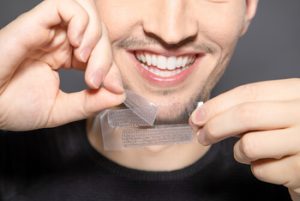When it comes to achieving a pearly smile, whitening toothpaste often seems like the simplest and most convenient solution. After all, it promises to lift stains and enhance the whiteness of your teeth with little to no extra effort. But with so many options available, from those containing hydrogen peroxide to others infused with baking soda or even activated charcoal, it’s natural to wonder: Is whitening toothpaste bad for your teeth?
In this blog, we’ll unpack the benefits, risks, and truths behind whitening toothpaste. We’ll explore how they work, what ingredients to watch for, and whether long-term use could compromise your oral health.
Behind the Shine: How Whitening Toothpaste Actually Works
Whitening toothpaste is a kind of toothpaste formulated specifically to help remove surface stains from the teeth. These surface stains, also known as extrinsic stains, are typically caused by everyday habits such as drinking coffee, tea, red wine, or smoking.
Most whitening toothpastes work through one or a combination of the following mechanisms:
- Mild abrasives (like calcium carbonate or sodium bicarbonate) help scrub away surface stains.
- Chemical agents such as hydrogen peroxide or carbamide peroxide break down and bleach stains.
- Some use optical brighteners that give the appearance of whiter teeth temporarily.
Unlike professional whitening treatments, which can target deeper intrinsic stains, teeth whitening toothpaste is limited to surface-level improvements.
What Are the Common Ingredients in Whitening Toothpaste?
The effectiveness of a teeth whitening toothpaste often comes down to its ingredients. While some are gentle and safe for everyday use, others may carry more risks when used for long periods.
Here’s a breakdown of common whitening agents:
- Hydrogen peroxide: A bleaching agent used in both over-the-counter and professional whitening products. It can whiten teeth but may cause tooth sensitivity and gum irritation.
- Carbamide peroxide: A chemical compound that breaks down into hydrogen peroxide, the key ingredient behind whitening effects. It works more gradually but is frequently used in whitening treatments for its gentler action.
- Sodium bicarbonate (baking soda): A gentle abrasive that helps remove surface stains.
- Calcium carbonate: Another mild abrasive found in many regular toothpastes and whitening toothpastes.
- Activated charcoal: Popular for its adsorptive qualities, but controversial due to its abrasive ingredients that may damage enamel over time.
- Silica: Used in most whitening toothpastes for polishing teeth and lifting stains.
Can Whitening Toothpaste Harm Your Teeth?
Yes, whitening toothpaste can harm your teeth, but only under certain conditions. While many teeth-whitening toothpastes are safe for short-term or occasional use, problems may arise with prolonged use, misuse, or choosing a formula that’s too harsh for your enamel.
Here are the main risks to be aware of:
1. Enamel Erosion
Some whitening toothpastes use abrasive ingredients like calcium carbonate, sodium bicarbonate (baking soda), or activated charcoal to physically scrub away surface stains. Over time, these mild abrasives can wear down your tooth enamel, especially if used aggressively or for long periods. Once enamel wears away, it doesn’t grow back, making your teeth more prone to decay, sensitivity, and staining.
2. Increased Tooth Sensitivity
Toothpaste with bleaching agents like hydrogen peroxide or carbamide peroxide can pass through the enamel and irritate the nerves within your teeth. This often leads to increased tooth sensitivity, especially when exposed to hot, cold, or sweet foods.
3. Gum Irritation
Whitening agents can also irritate your gums, causing redness, inflammation, or even a burning sensation, particularly if the toothpaste is used too frequently or applied improperly.
4. Damage to Dental Work
Whitening toothpastes do not work on crowns, veneers, or fillings and may result in uneven colouring between natural and restored teeth. Some abrasive formulas may even scratch or dull the surface of dental restorations.
5. Masking Underlying Problems
While whitening toothpastes can improve the look of your teeth, they may also mask signs of oral health issues like tooth decay or plaque buildup, delaying necessary dental treatment.
Use Whitening Toothpaste Wisely
To reduce risks:
- Select a product with the ADA Seal of Acceptance.
- Avoid daily use for long periods.
- Use a soft-bristled toothbrush.
- Alternate with regular toothpaste
- Speak with your dentist if you experience any sensitivity or discomfort.
In short, whitening toothpaste may be bad for your teeth if misused, but with proper care and informed choices, it can be a helpful addition to your dental care routine.
Is Teeth Whitening Toothpaste Safe for Everyday Use?
If you’re using a whitening toothpaste that carries the ADA Seal, uses low-abrasion formulas, and is not applied excessively, it’s generally considered safe for everyday use. However, teeth-whitening toothpaste that is safe for daily brushing should meet certain standards, particularly in terms of relative dentin abrasivity (RDA).
Most dentists agree that alternating between whitening and regular toothpaste or using whitening toothpaste for a few weeks at a time can help reduce the risk of enamel damage or tooth sensitivity.
How Does Whitening Toothpaste Compare to Professional Treatments?
When deciding between whitening toothpaste and professional whitening treatments, it helps to understand their differences in effectiveness, speed, safety, and cost. While both aim to give you a brighter smile, they achieve this in very different ways.
 Effectiveness
Effectiveness
Whitening toothpaste works on extrinsic stains, those that sit on the surface of your teeth. It typically contains mild abrasives such as baking soda or calcium carbonate, and sometimes low concentrations of hydrogen peroxide or carbamide peroxide. Results are usually mild and gradual.
In contrast, professional whitening treatments target both surface stains and deeper intrinsic stains, which may result from ageing, trauma, or specific medications. Using stronger concentrations of bleaching agents, these treatments deliver noticeably brighter results, often after just a single session.
Speed of Results
Whitening toothpaste needs to be used daily for several weeks or more before you may notice visible changes. In contrast, professional teeth whitening often shows immediate results, especially with in-chair treatments performed by a dentist.
Customisation and Safety
Whitening toothpaste is a one-size-fits-all product. It doesn’t adapt to your specific needs and may not be suitable if you have tooth sensitivity or dental restorations. Professional whitening, however, is tailored to your mouth. Dentists will assess your oral health, adjust the treatment based on your sensitivity, and ensure that your enamel and gums are protected throughout the process.
Longevity of Results
The results from whitening toothpaste tend to fade quickly once you stop using the product. Since it only targets surface stains, it doesn’t alter the underlying colour of your teeth. Professional treatments, however, provide longer-lasting results and can be maintained with good oral hygiene and occasional touch-ups.
Cost and Accessibility
Whitening toothpaste is affordable and widely available, making it a convenient option for many people. Professional whitening treatments, though more expensive, offer a much higher level of whitening, tailored care, and faster results.
Signs Whitening Toothpaste May Not Be Right for You
Here’s how to tell if your whitening toothpaste is doing more harm than good:
- Your teeth feel increasingly sensitive to hot or cold
- You notice thinning or see-through edges on your front teeth
- Your gums are red, inflamed, or sore
- You feel a roughness or chalky texture on your teeth
If any of these signs appear, stop using the product and consult your dental care provider.
Tips to Use Whitening Toothpaste Safely
Want the benefits without the risks? Here are some tips to protect your teeth while using whitening toothpaste:
- Limit use to short periods, such as 2 to 4 weeks at a time
- Use a soft-bristled toothbrush to minimise wear
- Alternate with a non-whitening toothpaste
- Avoid brushing aggressively
- Stay away from highly abrasive options like activated charcoal
- Choose products approved by the Australian Dental Association
- See your dentist regularly to observe your oral health and catch any issues early.
Are There Better Alternatives for Whiter Teeth?
 Yes. If your goal is a noticeably whiter smile without compromising your enamel, consider these safer, more effective options:
Yes. If your goal is a noticeably whiter smile without compromising your enamel, consider these safer, more effective options:
- Professional whitening products or professional whitening treatments performed at a dental clinic
- Custom whitening trays designed by your dentist
- In-office bleaching agents with desensitising components
- Over-the-counter whitening strips with lower peroxide concentrations, if used correctly
- Lifestyle changes such as reducing stain-causing foods and drinks
Remember, not all teeth whitening products are created equal. Consulting with a dentist can help you find the right approach based on your needs, tooth sensitivity, and budget.
Final Thoughts: Is Whitening Toothpaste Bad for Your Teeth?
In moderation, whitening toothpaste can be a useful tool to remove surface stains and maintain a brighter smile. But, like many things, too much of a good thing can be harmful.
Using whitening products too often or incorrectly can lead to enamel wear, increased tooth sensitivity, and irritated gums. That’s why it’s important to choose your toothpaste wisely, pay attention to how your teeth respond, and always consult with your dentist before committing to any whitening treatments.
If you’re unsure about the best way to whiten your teeth, professional guidance is your safest and most effective option. A personalised plan that considers your unique oral health, stain type, and dental history will always outperform a one-size-fits-all solution from the supermarket shelf.
Contact Beyond Infinity Dental at (02) 8806 3799 and book a consultation to discuss safe and effective whitening options tailored to your smile. Let’s brighten your day the healthy way.
References
- WebMD. (n.d.). Teeth whitening and bleaching. https://www.webmd.com/oral-health/teeth-whitening-and-bleaching
- Cleveland Clinic. (n.d.). Tooth sensitivity. https://my.clevelandclinic.org/health/symptoms/10954-teeth-sensitivity
- Colgate. (n.d.). Teeth whitening toothpaste: Does it work? https://www.colgate.com/en-us/oral-health/selecting-dental-products/teeth-whitening-toothpaste-does-it-work
- National Institute of Dental and Craniofacial Research. (n.d.). Oral hygiene. https://www.nidcr.nih.gov/health-info/oral-hygiene









